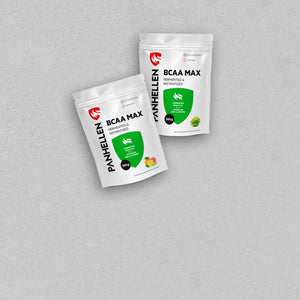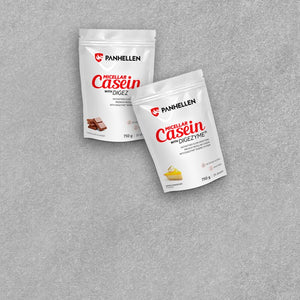THE BASIC PILLARS OF A SUCCESSFUL LIFESTYLE CHANGE

Are you planning a lifestyle change? Then this article may be useful for you, in which we have summarized in 10 points how to avoid suffering and setbacks, i.e. what is needed to switch from drastic and long-term ineffective fad diets to a healthy, happy lifestyle free of sacrifices, while "by the way" your body will also become the way you want to see it.
The body and appearance played an important role in people's lives even in ancient times. Today, however, physical appearance and preoccupation with it have become overvalued; too much emphasis in one's life. The messages about the (perceived) perfect appearance do not spare anyone, they sneak into our minds unnoticed and control our actions. Therefore, weight loss and related "tools" (such as nutrition, sports, dietary supplements) have developed into a separate industry. New forms of exercise, fad diets, and weight loss methods appear every day; the media inundates us with information. It is no wonder that most "diet diets" fail, and the individual is disappointed both in the method and in himself.
Instead of fads and temporary cures, a considered, gradual lifestyle change is significantly more useful.
THE BASIC PILLARS OF LIFESTYLE CHANGE
Even when we hear the word "diet", we can't expect anything good: a diet always means short-term. What is short-term and does not involve lifestyle changes will not have lasting results. The key is always in long-term sustainable changes, often carried out in small steps, affecting the entire lifestyle. But it doesn't matter how we start!
- We ourselves are the forge of our destiny
Let's formulate and describe what motivates (affects) us in changing our lifestyle! Let us recognize that we ourselves are responsible for our actions; only we ourselves can do to lose weight/gain weight/get stronger. We can tie our motivation to a specific event (e.g. "I want to fit into my wedding dress"), but general values can help more. These include improving/maintaining health, increasing self-confidence, avoiding joint problems in old age, etc.
- Remember, we are different!
One of the most important pillars is that the lifestyle program, including the diet, must always be individualized. "One-size-fits-all" recommendations don't work in the long run. Don't get me wrong, generalizations can work, but only as long as they are not about grams or calories; we are talking about exact numbers.
- Let's reform! We don't build new, we transform.
This means that we always have to change our existing diet. Most people, especially older people, find it difficult to give up their established routines and existing habits. Let's be patient with ourselves! Let's set realistic goals! One change, change brings another.
- Regularity, awareness
It is not only nutrition, but also the establishment of a system that is important in all areas of our lives. It depends on the individual what this means for whom. If we've been going to work without breakfast for 30 years, and we can't even imagine what it's like to refuel well in the morning, don't force it! An alternative solution must be sought: change, but with compromises.
Awareness is important. Let's plan the system, pay attention to what and when we eat. It is advisable to keep a food diary for a few days, which, when read back, we often experience surprising results.
- Eliminate sugar and its "friends"!
The first phase of the new lifestyle (about the first three months) is the hardest. This is when our diet changes radically; this time interval has the most cancellations. According to experience, the hardest thing is to give up the sweet taste, sugar. For many people, life without sweets is unimaginable, but with sufficient motivation, this can only be decided in the head.
Let's get to know (again) the natural taste of food! If you want sweets, choose a natural source: fruits. If the desire for sweets has not subsided, let's eat another portion of fruit! We are better off than giving up and eating a few bars of chocolate. If we stop, we can rightly be proud of ourselves.
Pay attention to the ingredients of the food! If you see the words "sugar", "sucrose", "glucose syrup", "fructose syrup", "maltodextrin", "dextrose", "cane sugar", "brown sugar" on the label, put it back on the shelf, choose something else . In addition, honey, various vegetable syrups or coconut flower sugar should also be avoided during weight loss.
- Vegetables and/or fruit for every meal
It is a very often mentioned recommendation, but it is even more important. Not a single meal should be missed without eating vegetables and fruits rich in vitamins and minerals (if possible, raw and fresh). Until we have implemented this, it would be a shame to introduce further innovations.
- Let's get to know the ingredients, foods, and techniques
We study raw materials, foods and their labels that are still unknown to us. If we've been afraid to skid in front of the "bio" or "reform" shelves, let's linger in front of them. We can also find tasty side dishes representing a world of new flavors, with which we can make our diet more varied. Make casseroles with millet, buckwheat or quinoa. Instead of brown lentils, try red lentils, which require only 15-20 minutes of cooking.
- Drink enough, high-quality fluids
If possible, mineral water, (purified) tap water or unflavored medicinal tea, and at least 1.5-2 liters per day. The importance of fluid intake cannot be overemphasized, but it is what most people struggle with the most. If it helps, download an application to your phone that prompts you to drink water (such as the free Aqualert application), prepare a glass/bottle in front of you, or use notes/telephone alarms to remind yourself to drink 3-4 sips every 20 minutes.
- Only of course
Let's try to prepare our own food and avoid "enriched" or semi-finished products with flavor enhancers and additives. Let's buy spices and flavor them in a variety of ways. This way, neither the cooking nor the prepared delicacy will be boring or monotonous, not to mention that a delicately flavored dish can also help and improve digestion - unlike artificial flavor enhancers.
- Patience
It is a fact that weight loss can be rapid, but the result is likely to be short-term and the lost kilos will come back - or double. Let's think long-term, give ourselves time! Just as most of the extra kilos that have been deposited do not come off in 1-2 months, it is also not possible to lose them so easily. Always set realistic goals for yourself. Let's think about losing 0.5-1 kg per week , which may seem slow, but is safe . Slow weight loss does not cause mood swings, concentration disorders, malaise, metabolic disorders or health damage.
We perceive lifestyle change as learning: we learn our body's signals; the properties and effects of food on the body.
IS THERE A CONSUMER DIETARY SUPPLEMENT?
Many people want to get rid of a few kilos without changing their diet or lifestyle, but instead reach for some dietary supplement. It must be stated that without regular exercise and minor or major dietary changes, we can buy any miracle drug, the expected effect will certainly not be achieved. There is no such thing as a fat-burning, weight-loss dietary supplement! However, if we introduce some nutritional reforms and include some light exercise at least 2 times a week, we can look around the market for dietary supplements.
What can be really effective?
We can find a lot of "hunger-reducing" magic remedies on store shelves, but vegetable fibers with a sufficiently proven and safe effect, e.g. preparations containing chitosan or glucomannan (also known as devil's tongue extract) or, optimally , both, in appropriate proportions . In their case, we are talking about ingredients of natural origin that resist digestion, but have a number of beneficial physiological effects on appetite and digestion, and thus indirectly on body weight. Fibers help to reduce the absorption of sugars, improve the sensitivity of cells to insulin; they bind and reduce the absorption of fats and cholesterol. In addition to all this, they also have a great effect on the "quality" of food: they increase the amount of food consumed, which slows down the emptying of the stomach and provides a longer feeling of satiety.
It is important to mention that when using a fiber-containing dietary supplement, it is also necessary to increase our liquid consumption , as well as pay close attention to the adequate intake of fat-soluble vitamins ( vitamins A, D, E, K ) and essential fatty acids ( e.g. omega-3 fatty acids ). , to replace.













